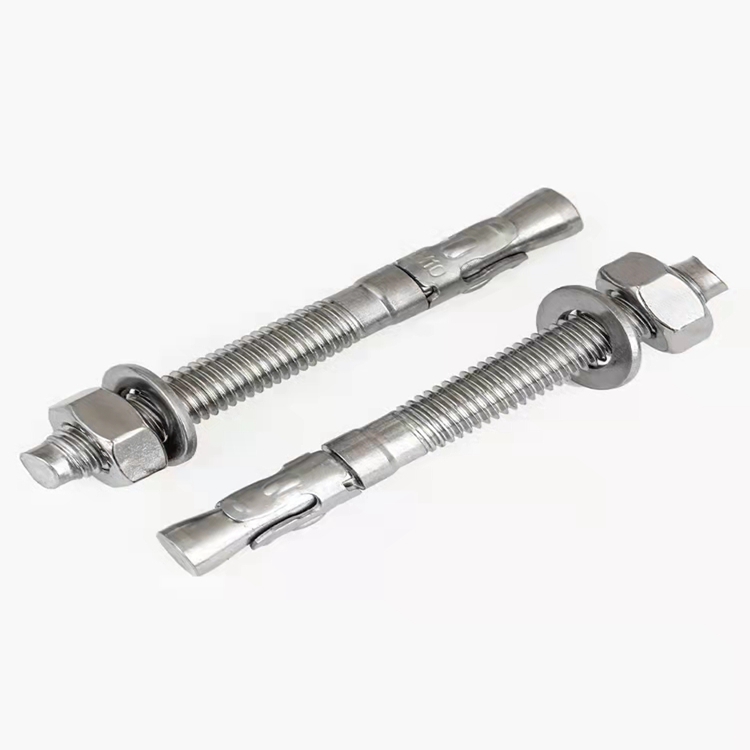oem fine thread nuts
Dec . 07, 2024 12:44 Back to list
oem fine thread nuts
Understanding OEM Fine Thread Nuts A Comprehensive Guide
Fine thread nuts are critical components in various engineering and manufacturing applications, providing secure fastening and stability to structures and machinery. Original Equipment Manufacturers (OEMs) often rely on these specialized components to ensure high performance and reliability in their products. This article delves into the significance, specifications, and applications of OEM fine thread nuts, offering insights into why they are essential in modern industry.
What Are Fine Thread Nuts?
Fine thread nuts are nuts that are characterized by closely spaced threads, which allow for finer adjustments and a tighter fit compared to standard coarse thread nuts. These nuts are typically used in applications where precision and strength are paramount. The fine pitch of the threads not only contributes to a better grip but also reduces the likelihood of loosening due to vibrations, making them highly suitable for automotive, aerospace, and heavy equipment applications.
Benefits of Fine Thread Nuts
1. Increased Clamping Force Fine thread nuts provide a greater surface area for bearing against the bolt. This leads to increased clamping force, making them ideal for high-stress applications.
2. Better Control Over Torque The finer pitch allows for finer adjustments during tightening, enabling more controlled torque application. This is particularly beneficial in precision engineering tasks.
3. Enhanced Vibration Resistance The closely spaced threads of fine thread nuts exhibit excellent resistance to loosening due to vibrations, a common problem in machinery and automotive applications.
4. Improved Adjustability Fine threads allow for more precise positioning and adjustment of components, making them suitable for applications that require meticulous alignment.
Specifications of OEM Fine Thread Nuts
oem fine thread nuts

OEM fine thread nuts are manufactured to strict industry standards to ensure compatibility and reliability. Key specifications include
- Thread Pitch Typically measured in millimeters, the thread pitch of fine thread nuts is smaller than that of coarse thread nuts. - Material Composition Depending on the application, fine thread nuts can be made from various materials, including stainless steel, carbon steel, and specialized alloys. The choice of material affects the nut’s strength, corrosion resistance, and thermal stability. - Finish Various finishes, such as zinc plating and powder coating, are used to enhance corrosion resistance and improve the aesthetic appeal of the nuts. - Size and Dimensions OEM fine thread nuts come in various sizes to accommodate different bolt diameters and lengths. Accurate dimensions are crucial for ensuring proper fit and function.
Applications of OEM Fine Thread Nuts
Fine thread nuts are utilized across various industries due to their versatility and reliability. Some common applications include
1. Automotive Industry They are often found in engine assemblies, suspension systems, and transmission systems, where high reliability and resistance to vibrations are essential.
2. Aerospace In aircraft manufacturing, fine thread nuts are critical for securing components in high-stress environments, providing safety and durability.
3. Machinery and Equipment Industrial machinery relies on fine thread nuts for secure assembly, allowing for precise adjustments and maintaining operational integrity.
4. Construction Fine thread nuts are often used in structural applications, such as steel framework and heavy equipment, to ensure safety and stability.
Conclusion
OEM fine thread nuts are indispensable in the contemporary industrial landscape, providing the reliability, strength, and precision required in various applications. Understanding their specifications, benefits, and uses can help manufacturers and engineers make informed decisions when selecting the right fasteners for their projects. As technology continues to evolve, the role of fine thread nuts will only become more crucial, driving innovations in design and functionality across multiple sectors.
Latest news
-
High-Quality Panel Stud Bolt Reliable Panel Stud Bolt Factory & Suppliers
NewsJul.08,2025
-
High-Precision Fine Thread Locknuts Manufacturer & Supplier Custom Solutions
NewsJul.08,2025
-
PH Imperial Stud Bolt – High Strength Fasteners from Leading Supplier & Factory
NewsJul.07,2025
-
High-Quality Allen Wrench Bolts Leading Factory, Company & Suppliers
NewsJul.07,2025
-
Wholesale Ball Stud Bolt - High Quality Supplier & Factory Price Reliable Wholesale Ball Stud Bolt Company
NewsJul.06,2025
-
High-Strength Alloy Bolts Manufacturer & Supplier Quality Alloy Fasteners Factory
NewsJul.06,2025
